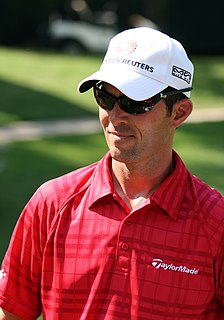A Quote by Alexandra Adornetto
I've had a few embarrassing moments in restaurants. I tried to order a quesadilla, and I totally mispronounced the word. And another time, I asked for some toast with Marmite, and they had no idea what I was asking for!
Related Quotes
This act of piss, which can be considered sexual by some, a pleasurable experience, is at the same time total disrespect. I had once asked a friend to do this picture and he totally refused. So I carried the idea around with me for years. When I was invited to do a Honcho shoot, I approached Phillip, who was the barman at The London Apprentice, and fortunately he knew who I was. He had a copy of my first book, and that broke the ice. At the end of the shoot with him, I realized I could ask him to do this picture. I had waited four years to do it.
I was at the New York Film Critics Circle Awards one year - they called me up when somebody canceled two days before the thing, and asked me to present some awards. So I went, and one of the funniest film moments I've ever had was when they introduced the New York film critics. They all stood up - motley isn't the word for that group. Everybody had some sort of vision problem, some sort of damage - I had to bury myself in my napkin.
In the early days of the Internet, the word "navigation" had this ingrained in it. There really was a sensation of the cyber-flâneur, as you really would have no idea where you would end up. You would end up on pages that had nothing to do with what you wanted, experiences that were totally unanticipated. You had to connect the dots, connect the parcels of your experience. It was totally open to randomness.
They had battled and bloodied one another, they had kept secrets, broken hearts, lied, betrayed, exiled, they had walked away, said goodbye and sworn it was forever, and somehow, every time, they had mended, they had forgiven, they had survived. Some mistakes could never be fixed - some, but not all. Some people can't be driven away, no matter how hard you try. Some friendships won't break.
I had tried, as I thought as a nun, to open myself to God and God seemed totally uninterested in me. The heavens remained closed and opaque. I now realize, of course, that I had a very, very inadequate idea of God. I was expecting clouds to part, a little sort of whisper in my ear, and of course, that's not what God is. God is not another being; we are talking about something much more profound.
It would perhaps not be amiss to point out that he had always tried to be a good dog. He had tried to do all the things his MAN and his WOMAN, and most of all his BOY, had asked or expected of him. He would have died for them, if that had been required. He had never wanted to kill anybody. He had been struck by something, possibly destiny, or fate, or only a degenerative nerve disease called rabies. Free will was not a factor.
I had often thought that if I managed to live through the war I wouldn't expect too much of life. How could one resent disappointment in love if life itself was continuously in doubt? Since Belgorod, terror had overturned all my preconceptions, and the pace of life had been so intense one no longer knew what elements of ordinary life to abandon in order to maintain some semblance of balance. I was still unresigned to the idea of death, but I had already sworn to myself during moments of intense fear that I would exchange anything - fortune, love, even a limb - if I could simply survive.
A few times in my life I've had moments of absolute clarity, when for a few brief seconds the silence drowns out the noise and I can feel rather than think, and things seem so sharp. And the world seems so fresh as though it had all just come into existence. I can never make these moments last. I cling to them, but like everything, they fade. I have lived my life on these moments. They pull me back to the present, and I realize that everything is exactly the way it was meant to be.
After the fire, when I'd tried to express my gratitude for their kindness to our customers, they'd been awkward, uncomfortable. My father had had to explain to me that giving thanks is not a common practice in India. 'Then how do you know if people appreciated what you did?' I'd asked. 'Do you really need to know?' my father had asked back.


































